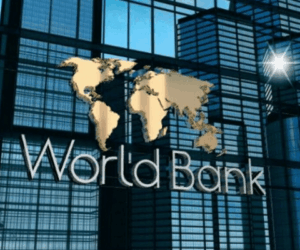…Agric hub underway as group explores strategies for regional agricultural development
…NDDC CEO says Niger Delta can feed Nigeria
The Niger Delta intervention agency and the nine states of the oil region have mounted a food front.
This came after two days of brainstorming where the Niger Delta Development Commission (NDDC) commissioners, permanent secretaries, and directors in charge of agriculture, fisheries and livestock of the nine mandate states in Port Harcourt to explore strategies towards achieving food security and unlocking the region’s agricultural potentials.
The meeting, tagged: ‘Unlocking Agricultural Potentials of the Niger Delta Region,’ was described as a strategic engagement for the nine Niger Delta states to engage on transforming the oil-rich region into an agricultural hub.
Samuel Ogbuku, managing director of the Niger Delta Development Commission (NDDC), said the region should adopt a development approach that would see agriculture become an engine for inclusive economic growth, adding that the future for the Niger Delta is agriculture.
“This retreat is aimed at robbing minds as people from the region to see how we can integrate agriculture in this region, to look at our various areas of comparative advantage, state by state, and put them together to ensure that there is food security in the Niger Delta.
“NDDC is only providing itself as a platform for this, bringing the states together so we can build an integrated agricultural hub that can be used for food security,” he said.
Ogbuku said the Niger Delta has the capacity to “feed this country, not only through our rich natural resources of oil and gas, we have the potential in agriculture, which we have not really harnessed.”
He said the region “has the comparative advantage nationally when it comes to the aquaculture. We have the rich landmass in areas like Abia Imo, Delta, parts of Bayelsa, Rivers.”
Read also: Coup rumours: NDDC denies arrest of its CEO
He said that the President Bola Tinubu administration, in its bid to ensure food security, has place agriculture as one of its cardinal areas of focus.
In line with this, the NDDC, as an interventionist agency, has decided that it is not enough to build roads, schools, hospitals. This is a time for us to also look after our stomach.
“We must leave lasting legacy behind for generations to benefit from what we’re starting today. This retreat will be cascaded to the level of the Regional Agricultural Summit. But for today, we are here to set the tone, to put together a framework that will guide us as a region,” he said.
Part of the framework, Ogbuku pointed out, would include building research and data collection across the nine states of the region, in a bid to transform the Niger Delta into an agricultural hub for the nation.
“We’re even going as far as putting together researchers and consultants to come up with an empirical study of the agricultural potentials in the Niger Delta. So that that will serve as a guide for prospective investors,” Ogbuku said.
He noted the need for governments across the region to invest in agriculture if the Niger Delta is to achieve food security, pointing out this would be impossible to achieve through subsistence farming alone.
Part of the initiatives undertaken by NDDC to trigger food production in the region, Ogbuku said, is its planned partnership with ORIGIN GROUP to build food hubs across the Niger Delta.
“The future for the Niger Delta is agriculture. Agriculture is not only limited to land. It also goes into the blue economy, because we are not even tapped into how to take advantage of the blue economy of the Niger Delta.
“It is only through agriculture that we can provide sustainable employment because with agriculture we have the variables which are under our control,” he said.
Victor Etim Antai, NDDC’s Executive Director (Projects), said the stakeholder’s meeting was a call to action. “Agriculture remains our surest path to inclusive growth, job creation and food security in the Niger Delta.
“With vast arable land, rich waterways and a resilient population, our region has the resources to become Nigeria’s next powerhouse in agricultural productivity,” he said.
Antai pointed out that the meeting affords the participants a rare opportunity to align their efforts from state governments and private investors, to research institutions and our energetic youth towards a coordinated agricultural transformation plan.
“Our discussions on value chains, mechanizations, finance and market access will shape a practical road map for action.
“As we deliberate today, let us think beyond talk towards collaboration, innovation and implementation. Together, we can build a Niger Delta that feeds itself, empowers its people and contributes meaningfully to national prosperity,” he said.









